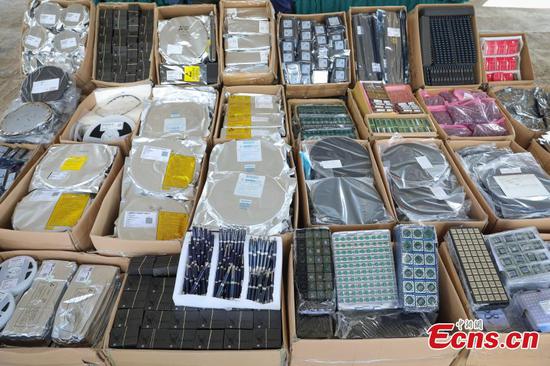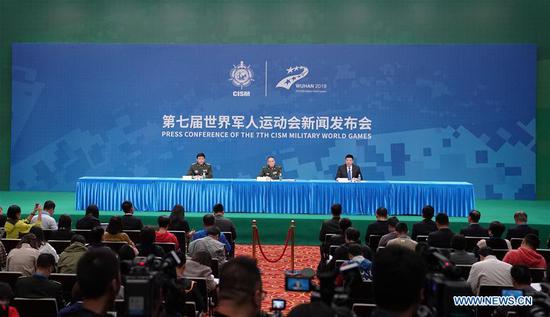The overseas investment into China's financial market has been on the rise as the country further opens up its financial sector.
Since the beginning of this year, net capital inflows through northbound trading, or money invested from Hong Kong into the Chinese mainland through the stock connect programs, have reached 198.8 billion yuan (about $20.08 billion), according to financial information provider Wind Info.
Overseas institutions are also swarming into China's bond mark. In the first three quarters of this year, the net purchase of Chinese bonds by foreign institutional investors has reached 800 billion yuan, surpassing the total amount for the whole of last year, Wind Info showed.
The active pace of foreign investors entering the Chinese market came after the country renewed its opening-up efforts over the past few months, with a slew of measures introduced to relax restrictions on its financial market.
For example, Chinese authorities Wednesday announced new rules that allow the non-transacting transfer of bonds under the same overseas entity QFII/RQFII and direct entry channels, and direct transfer between capital accounts.
The new rules came after China's financial reforms in September to abolish the investment quota limits for QFII and RQFII to boost financial opening-up.
These reforms can facilitate overseas institutional investors to invest in China and promote the internationalization of the renminbi, according to the People's Bank of China.
The country has also decided to scrap business restrictions for foreign banks, securities firms and fund management firms, and implement an amendment to the management regulations for foreign banks and insurance companies.
Foreign ownership limits on futures companies, fund management firms and brokerages will be lifted from Jan 1, April 1 and Dec 1 next year, respectively, said the China Securities Regulatory Commission last week.
In the banking sector, foreign players can establish branches and wholly foreign-owned banks at the same time on the Chinese mainland, and set up branches and Sino-foreign joint ventures simultaneously.
China's stocks and bonds are now being included in main international indexes, such as the MSCI, FTSE Russell, S&P Dow Jones and Bloomberg Barclays index, and its weight is steadily increasing.
Foreign investors will find it more convenient to participate in the domestic financial market, and China's bond market and stock market will be better accepted by the global market, according to the State Administration of Foreign Exchange.




















































